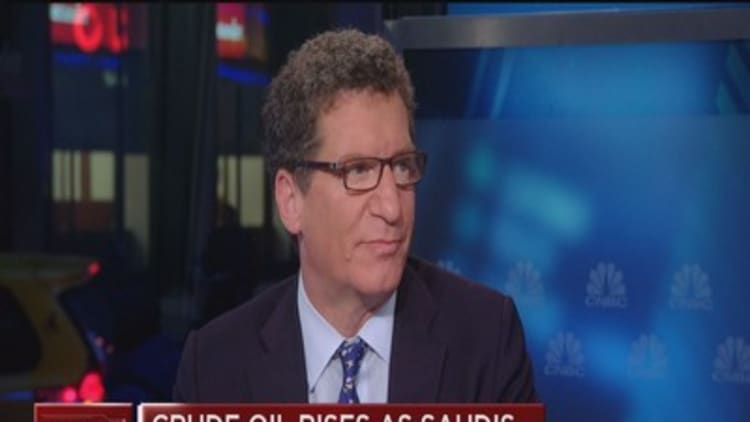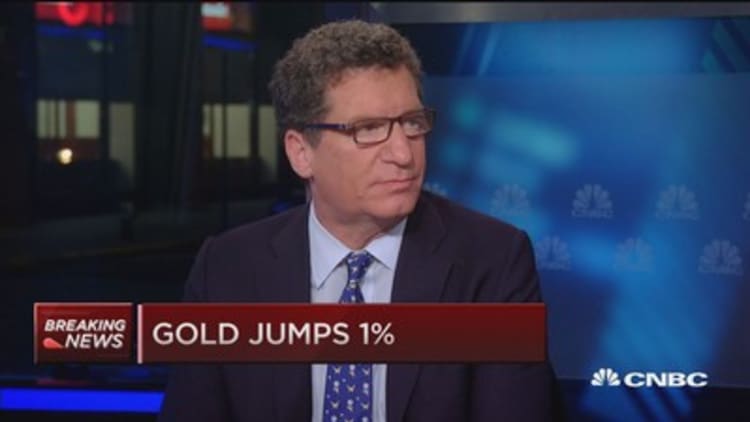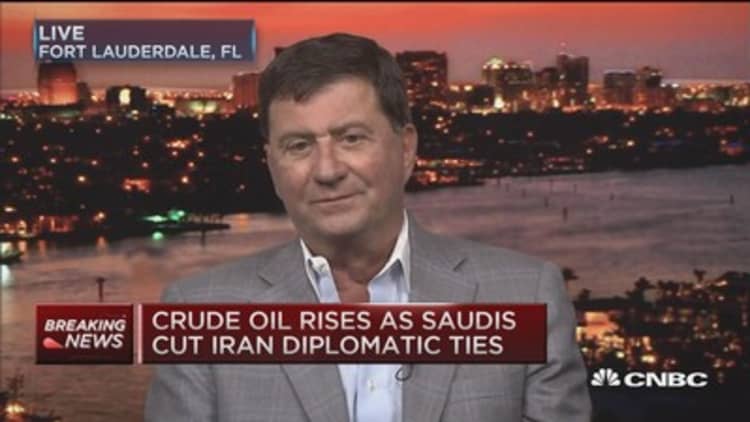


The most significant concern Citi Private Bank's global head of managed investments has for 2016 is a significant change in Chinese economic data that shows the country's growth is materially weaker, he told CNBC's "Squawk Box" on Monday.
"If you take a look at the market in China in the last year and how volatile it was and where it ended up, it was a difficult year and very year in that market for the entire time. The question is what does the real data look like," said David Bailin, who manages about $65 billion in alternative and traditional assets for wealthy clients at Citi.
Citi's view is that the Chinese economy is growing at 4 to 5 percent, he added. That is below government targets near 7 percent.
Chinese stocks plunged Monday, spurring a trading halt for the rest of the session, and leading stock markets in Asia-Pacific lower after feeble manufacturing surveys revived concerns over the mainland's economic slowdown. Global markets followed Asian stocks lower.
Before trading opened in China, the country's central bank, People's Bank of China, set the yuan midpoint at 6.5032 against its previous fixing of 6.4936. The yuan traded at 6.5081 against the dollar.
Citi sees markets in an uptrend for the next 12 to 18 months, but Bailin said there would be no smooth sailing. He noted that the markets are incredibly sensitive to China's currency moves.
"That is a major risk for the markets in 2016 and beyond. In the event that this becomes part of policy and they were to continually devalue, that would be a major negative factor for the markets this year," he said.
However, everything is not bleak in global markets. Bailin said Citi is taking a positive view on energy investments in the long term, municipal bonds and real estate.
The energy sector has been badly bruised during an 18-month rout that has slashed the cost of crude by two-thirds. The S&P 500 energy sector was the worst performer in the broader index in 2015, ending the year down 23.55 percent.
But Bailin said OPEC's strategy of maintaining high oil production, which keeps crude prices low and hurts higher-cost producers in the United States and Russia, is not sustainable. That strategy has kept oil markets oversupplied by about 1.5 million barrels per day.
"The question is will the supply-demand imbalance remain in oil, and we at Citi don't think so. We think wealthy clients should be putting money to work in the energy sector over the next three to six months at these prices," he said.
Bailin noted the view on energy remains negative for 2016, but this is the year to acquire assets ahead of an eventual rebound.
Citi also likes the municipal bond market, he said, noting it provides a way to make money and preserve capital. He added that real estate, particularly in major global cities, also offers a real return relative to the cost of capital in the current environment.
"Fundamentally, we do believe that the supply-demand economics of real estate in major cities is going to be positive," he said.
—CNBC's Saheli Roy Choudhury contributed to this report.



